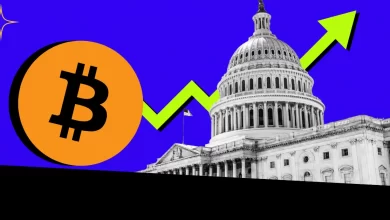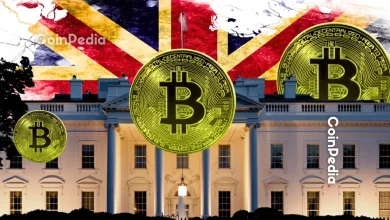
Vietnam Legalizes Crypto Under New Digital Law – Starting Jan 1, 2026, Vietnam will officially recognize crypto assets and virtual tokens.
Vietnam Sets Global Standards for AI & Crypto – The new law aligns with AML/CFT rules, boosting tech innovation and foreign investment.
Vietnam officially legalized digital assets and set up a legal framework for artificial intelligence (AI) for the first time. The country passed the Law on Digital Technology Industry with overwhelming support—441 out of 445 delegates voted in favor, marking a major turning point for Southeast Asia’s growing digital economy.
Vietnam Recognizes Crypto Under New Law
On June 14, the Vietnamese National Assembly formally recognized digital assets as legal virtual assets under the Civil Code. This means cryptocurrencies like Bitcoin and Ethereum can now be used for investment and exchange, offering legal clarity to investors and businesses.
The new law introduces a two-tier classification system:
- Virtual Assets: Non-financial tokens, loyalty points, and gaming items
- Crypto Assets: Blockchain-based assets like Bitcoin, Ethereum, and potentially NFTs
It’s important to note that securities, CBDCs, and traditional financial instruments are excluded from this framework.
When Will the Law Come Into Effect?
The Digital Technology Law is set to go live on January 1, 2026. It will provide legal frameworks not just for digital assets, but also for AI, blockchain, and semiconductor development, positioning Vietnam as a rising digital powerhouse in Asia.
This move reflects the country’s strategic ambition to boost productivity, innovation, and intelligence through legal clarity and technology governance.
International Compliance: A Key Priority
Vietnam’s inclusion on the FATF grey list for weak crypto regulations has long hindered its global reputation. This new law directly addresses those concerns by embedding AML (Anti-Money Laundering) and CFT (Counter Financing of Terrorism) standards into the framework.
The regulation also includes measures to prevent the use of digital assets for weapons proliferation, aligning Vietnam with global safety and financial standards.
What Comes Next?
As implementation begins, Vietnam will:
- Set detailed regulatory guidelines for licensing and operations
- Enforce compliance standards for financial institutions and crypto service providers
- Require strict adherence to AML, CFT, and cybersecurity protocols
This sweeping reform is expected to fuel foreign investment, foster innovation in digital industries, and secure Vietnam’s place on the global tech stage.
Never Miss a Beat in the Crypto World!
Stay ahead with breaking news, expert analysis, and real-time updates on the latest trends in Bitcoin, altcoins, DeFi, NFTs, and more.
FAQs
Cryptocurrencies are considered investment assets and are subject to tax. Capital gains (20%), income from mining/staking (5-35%), and VAT on service fees (10%) apply, with specific reporting requirements.
Vietnam has a high crypto adoption rate, ranking 7th globally with 20.69% user penetration in 2025, expected to reach 21.71 million users by 2026.
The Ministry of Finance (MOF) and the State Bank of Vietnam (SBV) are the primary government bodies tasked with proposing and developing the legal framework for crypto, with support from other ministries.
Trust with CoinPedia:
CoinPedia has been delivering accurate and timely cryptocurrency and blockchain updates since 2017. All content is created by our expert panel of analysts and journalists, following strict Editorial Guidelines based on E-E-A-T (Experience, Expertise, Authoritativeness, Trustworthiness). Every article is fact-checked against reputable sources to ensure accuracy, transparency, and reliability. Our review policy guarantees unbiased evaluations when recommending exchanges, platforms, or tools. We strive to provide timely updates about everything crypto & blockchain, right from startups to industry majors.
Investment Disclaimer:
All opinions and insights shared represent the author's own views on current market conditions. Please do your own research before making investment decisions. Neither the writer nor the publication assumes responsibility for your financial choices.
Sponsored and Advertisements:
Sponsored content and affiliate links may appear on our site. Advertisements are marked clearly, and our editorial content remains entirely independent from our ad partners.








